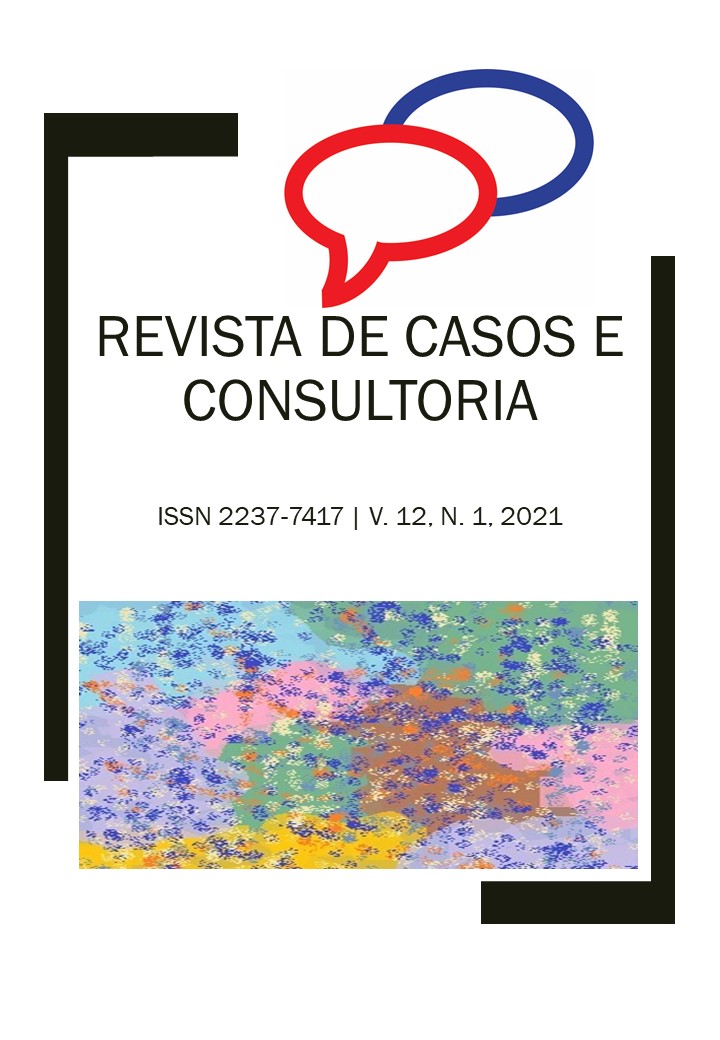Contributions and limitations of Neo-Institutional Theory for understanding corporate environmentalism
Keywords:
Corporate environmentalism; Neo-Institutional Theory; Theoretical agenda; Sustainability.Abstract
This essay was designed to present the contributions and gaps that the Neo-Institutional Theory about the need for sustainable production and corporate environmentalism proposed by Hoffman (2001). For this, elements of the Neo-Institutional Theory were retrieved and approaches on the theme of sustainability with a focus on business environmentalism were arranged. Finally, an overlapping of Neo-Institutional Theory with the perspective of sustainability, in the strict sense of corporate environmentalism was carried out, highlighting subsidies and negligence of the theory as well as the disparity of the theoretical agenda with the empirical agenda and its implications for understanding this strand of environmentalism. It is concluded that the gap left by the Neo-Institutional Theory lies in the fact that it does not contemplate the dimension of power in its analytical structure and, consequently, does not observe the political essence of sustainable production.
Downloads
References
AKTOUF, O. Pós-globalização, administração e racionalidade econômica: a síndrome do avestruz. São Paulo: Atlas, 2004.
BARLEY, S.; TOLBERT, P. Institutionalization and Structuration: Studying the links between action and institution. Organization Studies, 18(1), 93-117, 1997.
BERGER, P.; LUCKMANN, T. A construção social da realidade: tratado de sociologia do conhecimento. Petropólis: Vozes, 2013.
CAPELARI, M. Relações de poder e regulação ambiental: um estudo da Klabin-PR. 2012. 140 f. Dissertação (Mestrado) - Curso de Administração, Universidade Estadual de Londrina, Londrina – PR, 2012.
DIMAGGIO, P. J.; POWELL, W. W. A gaiola de ferro revisitada: isomorfismo institucional e racionalidade coletiva nos campos organizacionais. Revista de Administração de Empresas, 45(2), 74-89, 2005.
EGRI, C.; e PINFIELD, L. As Organizações e a Biosfera: Ecologia e Meio Ambiente. In S. CLEGG, C. HARDY, e W. NORD (Orgs.). Handbook de Estudos Organizacionais (pp. 361-397). Vol. 1. São Paulo: Atlas, 2012.
HOFFMAN, A. Linking Organizational and Field-Level Analyses: The Diffusion of Corporate Environmental Practice. Organization Environment, 14(2), 133-156, 2001.
HOPWOOD, B., MELLOR, M., e O’BRIEN, G. Sustainable development: Mapping different approaches. Sustainable Development, 13(1), 38-52, 2005.
JÄNICKE, M. Ecological modernisation: new perspectives. Journal of Cleaner Production, 16(5), 557-565, 2007.
LASZLO, C; ZHEXEMBAYEVA, N. Embedded Sustainability: the next big competitive advantage. Stanford, California: Greenleaf, 2011.
SILVA, M. C.; GONÇALVES, S. Nota Técnica: A Teoria Institucional. In S. CLEGG, C. HARDY, e W. NORD (Orgs.). Handbook de Estudos Organizacionais. (pp. 218-225). Vol. 1. São Paulo: Atlas, 2012.
MARCH, J.; e OLSEN, J. Neo-institucionalismo: fatores organizacionais na vida política. Revista de Sociologia Política, 6(31), 121-142, 2008.
MEYER, J. W.; ROWAN, B. Institucionalized organizations: formal structure as myth and ceremony. American Journal of Sociology, 83(2), 340-363, 1977.
MIZOCSKY, M. C. Poder e institucionalismo: uma reflexão crítica sobre as possibilidades de interação paradigmática. In M. M. F. VIEIRA; C. A. CARVALHO. (Orgs.). Organizações, instituições e poder no Brasil (pp. 141-175). Rio de Janeiro: Editora da FGV, 2003.
PECI, A. A nova teoria institucional em estudos organizacionais: uma abordagem crítica. Cadernos EBAPE, 4(1), 1-12, 2006.
RAO, H. The social construction of reputation: Certification contests, legitimation, and the survival of organizations in the American automobile industry: 1895-1912. Strategic Management Journal, 15(Supplement 1), 29-44, 1994.
REZENDE, U. Os diferentes níveis de abstração do pensamento administrativo. Florianópolis: UFSC, 1980.
SELZNICK, P. Institutionalism “Old” and “New”. Administrative Science Quarterly, 41(2), p. 270-277, 1996.
___. TVA and the Grassroots. Berkeley: UC Berkeley Press, 1984.
SHIOTA, R. R. Florestan Fernandes e a fundamentação empírica da sociologia no Brasil. Anais do Simpósio de Pós-Graduando em Sociologia, São Paulo, SP, Brasil, 2010.
SHWOM, R. Strengthening sociological perspectives on organizations and the environment. Organization e Environment, 22(3), 271-292, 2009.
SOUZA, R. S. Fatores de formação e desenvolvimento das estratégias ambientais nas empresas. Dissertação de Mestrado, Universidade do Rio Grande do Sul, Porto Alegre, RS, 2004.
TOLBERT, P.; ZUCKER, L. A Institucionalização da Teoria Institucional. In S. CLEGG, C. HARDY; W. NORD (Orgs.). Handbook de Estudos Organizacionais (pp. 194-217). Vol. 1. São Paulo: Atlas, 2012.
ZUCKER, L. The role of institucionalization in cultural persistence. American Sociological Review, 42(4), 726-743, 1977.
___. Institutional theories of organization. Annual Review of Sociology, 13(aug), 443-467, 1987.

 Português (Brasil)
Português (Brasil) English
English Español (España)
Español (España)